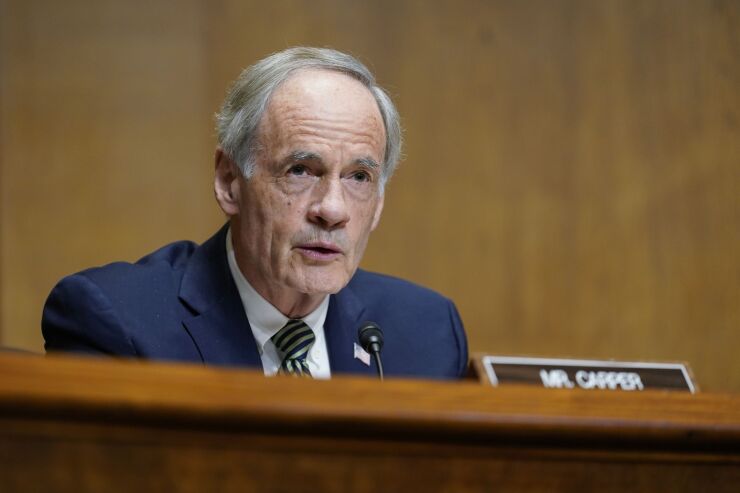As the effect of the Infrastructure Investment and Job Act continues to infiltrate into efforts to rebuild the nation's roads and bridges and stand up an electric vehicle support network, a certain amount of confusion may be restricting the flow of some of the funds.
"Well intended new requirements such as the expansion of
Bauer's comments came during a recent hearing held by U.S. Senate Committee on Environment & Public Works dealing with the private sector perspective on putting the IIJA to work in the real world. The hearing was helmed by Chairman Tom Carper, D-Del. and ranking Republican Shelley Moore Capito of West Virginia.

The boost in activity being spurred by the IIJA legislation is happening nationwide. "Highway formula funds supported 2,500 more safety mobility and infrastructure improvements than in the previous year," said Bauer. "What we are seeing is more than just an increase in quantity but also an enhanced ability for states to tackle large scale projects with the resources and confidence provided by your legislation."
The
"These new requirements have created significant confusion among industry about the difference between a construction material and a manufactured product," said Ali Mills, President, Plum Contracting, Incorporated, while speaking on behalf of the Associated General Contractors of America.
Waivers for the act have been promised to the industry but other complications have ensued.
"While we still await clarification from OMB the initial director of
Despite the bumps, the panel was overall hopeful about the eventual effects of the legislation. "I think we all agree that this is a transformational bill," said Matt Stanberry, Managing Director, Highland Electric Fleets. "The private sector is ready to take it on. We all need help getting the rules right."
Continuity is also spreading cautious optimism. "The certainty provided by IIJA through the five re-authorizations of surface transportation programs has allowed companies to better plan and make robust investments," said Gary W. Johnson, P.E., Vice President, Land & Quarry, Granite Construction Company. "This is also important for state departments of transportation to be able to plan their work."
As municipalities begin unlocking the funding puzzle, things should become more clear. "
The power of leveraging best practices can help reduce the time to deploy and make sure we're ready to implement responsibly and effectively," said Jonathan Levy, Chief Commercial Officer, EVgo Services.
The sheer size and potential impact of the bill portends what could be a bonanza for the private sector.
"When we get to the point where the Bipartisan Infrastructure Act has to be re-authorized, if members of Congress and the American public don't know exactly how they benefitted and how greatly it changed the quality of life in the American economy, then our challenge of continuing the trajectory and maintaining the progress is going to be even greater," said Bauer.





